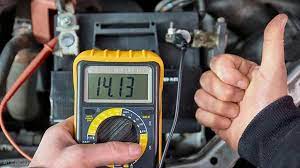Yes, But it depends on the alternator and the battery.
In general, an alternator is designed to maintain a constant voltage over time and across different loads.
However, if the alternator is charging at a higher rate than it is designed for, or if the battery cannot handle that rate of charge, then it can overcharge the battery.
This could lead to excessive gassing of hydrogen and oxygen from within the cell, which can cause several issues for your car’s electronics systems including potential damage to those systems.
The best way to prevent overcharging is by making sure that your alternator is properly calibrated to match your battery’s capacity and needs.
What Causes Alternator Overcharging?
Overcharging occurs when the voltage level in the alternator’s regulator is set too high. This causes more electricity than what is needed to be sent to the battery, which causes overcharging and damage to the battery cells.
Alternator overcharging can cause corrosion on the terminals of your battery and can also cause reduced lifespan of your battery by reducing its capacity to store charge.
What are the symptoms of your alternator overcharging your battery?
An alternator overcharging your battery can lead to a number of different symptoms, including the following:
1. The battery will feel hot to the touch
2. Your car won’t start at all, even after you’ve jumped it repeatedly
3. Dim or bright headlights
4. Faulty fuel gauge readings
5. Battery failure
How does it affect the battery?
Overcharging can cause irreversible damage to your battery, including shortening its lifespan and making it less powerful.
Overcharging can also damage a battery’s internal plates, causing them to deteriorate faster than they otherwise would have.
Overcharging also increases the likelihood of sulfation, where lead sulfate crystals form on the plates instead of electrolyte solution.
This reduces the capacity of a battery, which means you end up having to replace it sooner than you would’ve otherwise.
And depending on how severe the overcharging is, it may even lead to an explosion!
The more it is overcharged, the sooner your battery will need replaced or repaired. If this happens too often, it might even become unusable altogether.

